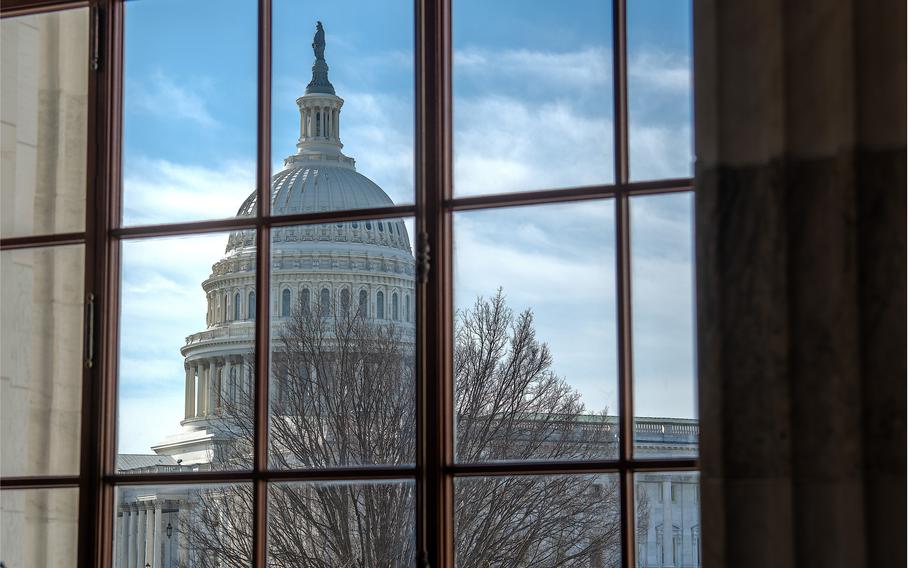
Surviving spouses of fallen service members could benefit from a job counseling program created for disadvantaged veterans that was expanded under a Senate bill approved Monday, Dec. 2, 2024, to include free career services for them. (Stars and Stripes)
WASHINGTON — A job counseling program created for disadvantaged veterans would be expanded to provide free career services to surviving spouses of fallen service members under a Senate bill approved Monday.
The legislation seeks to make the Department of Labor’s Disabled Veterans Outreach Program, or DVOP, available to widows or widowers whose spouses died while on active military duty or from a service-related disability.
For years, the program has given states funding to hire career specialists to work with veterans who face significant barriers to employment. The specialists assist with job search activities, create individual employment plans and provide other services.
A group of senators, led by Sens. Maggie Hassan, D-N.H., and Bill Cassidy, R-La., introduced a bill in February to open those opportunities to surviving spouses as well.
“We owe it to the families of fallen service members to do all that we can to support them after their devastating loss,” Hassan said in a statement Tuesday. “I urge my colleagues in the House to work with us to get this commonsense bill across the finish line.”
House lawmakers introduced a matching bill in July, but it remains stuck in the Committee on Veterans’ Affairs. The Senate earlier this year included the measure in its version of the 2025 National Defense Authorization Act, but it is unclear if it will make it into the final legislation.
Congress is expected to pass a compromise version of the defense policy bill later this month following negotiations between the House and Senate.
The proposal to expand the DVOP program is unlikely to face resistance from lawmakers. It will not require any new funding, according to a Department of Labor assessment, and any additional participants will be handled by existing specialists.
Of the more than 44,000 veterans who received help from the department’s Jobs for Veterans State Grants Program between July 2023 and June 2024, 94% received individualized career services from a DVOP specialist. The grant program has an employment rate of about 55%.
Surviving spouses are known to struggle financially after the death of a service member.
A 2012 study by the Rand Corporation think tank found the earnings of spouses decline significantly the first four years after a service member’s death. Grief and increased time demands at home can often keep the spouse from participating fully in the work force, according to the study.
Lawmakers in recent years have focused their legislative efforts on combating a stubbornly high unemployment rate among active-duty military spouses but less attention has been devoted to addressing the unique circumstances of surviving spouses.
“This bipartisan bill will ensure that surviving spouses have access to job counseling services and will help address some of the employment challenges that the families of those who have served face,” Hassan said.